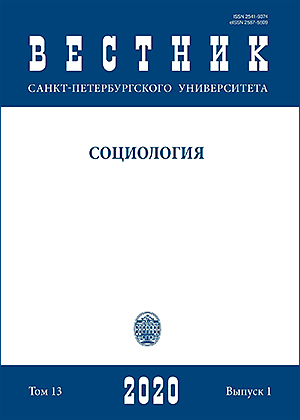Digitalization of higher education and its social outcomes
DOI:
https://doi.org/10.21638/spbu12.2020.106Abstract
The article, based on the analysis of publications related to digitalization of higher education, identified four trends associated with the introduction of digital technologies and tools in the educational process: the formation of a model of blended learning, the transition to online education, creating a virtual (digital) educational environment, and changing the approach to management of educational organizations. These trends are interconnected, however, each of them has a specific impact on the higher education institution, which is illustrated. On the one hand, digitalization promotes openness, flexibility of education, increased student engagement in the learning process, and the development of a network model of interaction between universities. On the other hand, it leads to the creation of a new educational situation and the inclusion of new actors in the education system, which changes the configuration of relations between the main participants. Digitalization, requiring appropriate adaptation, introduces significant changes in the roles of teachers and students in the learning process. The transition to online education and the creation of a virtual educational environment give rise to the need for changing the management of an educational organization. And if these changes do not take place, digitalization can lead to negative effects. The author justifies the need to systematize the social effects of digitalization of higher education and develops a research design for studying the social risks of transformation of the higher education institution under the influence of digitalization. The study is based on the strategy of a case study. A neo-institutional approach, emphasizing the cultural and cognitive aspect of the institute’s interpretation, was proposed as the methodological basis for the study. At the same time, the higher education institute is considered in the context of the social institute concept proposed by P. Berger and T. Lukman.
Keywords:
higher education, social institute, digitalization, blended learning, online education, virtual educational environment
Downloads
References
References
Downloads
Published
How to Cite
Issue
Section
License
Articles of "Vestnik of Saint Petersburg University. Sociology" are open access distributed under the terms of the License Agreement with Saint Petersburg State University, which permits to the authors unrestricted distribution and self-archiving free of charge.




